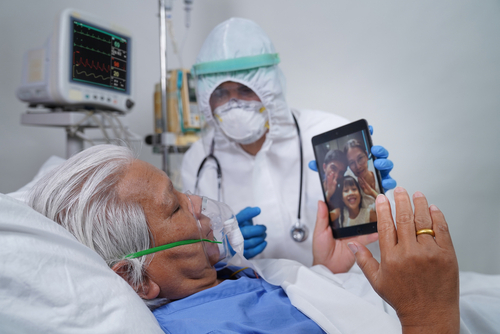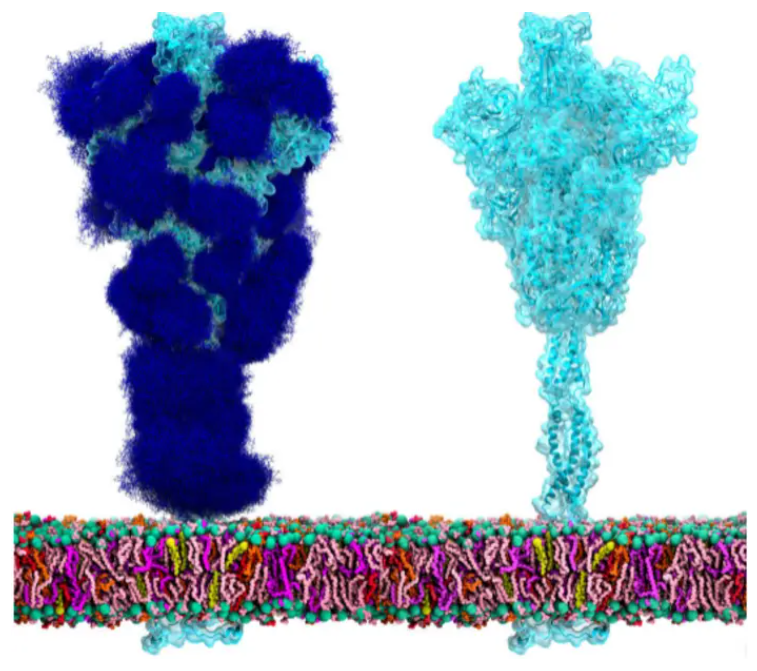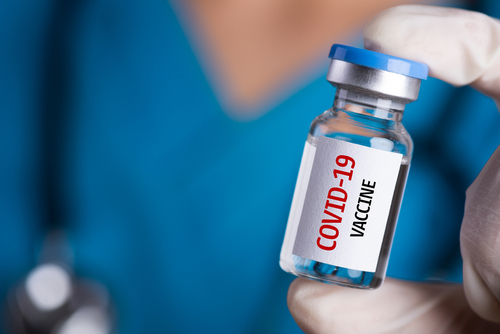
The experimental drug sabizabulin, originally developed to treat cancer, significantly reduced the risk of acute respiratory distress syndrome (ARDS) and death in hospitalized patients with moderate to severe SARS-CoV-2 (COVID-19), according to a study published today in the New England Journal of Medicine, and reported by The New York Times.
It’s been more than two years since the World Health Organization declared COVID-19 as a worldwide pandemic. Since then, we have seen more 509 million confirmed cases, and well over 6 million deaths worldwide to date. Though we have come far with respect to treatment for the respiratory disease – by way of vaccines and antiviral agents – death and morbidity remain high for hospitalized patients at high risk for ARDS.
The Need for a New COVID Treatment
Currently, moderate to severe COVID patients are managed with mechanical ventilation for respiratory failure, which doesn’t yield high success, underlying the need for a safe and effective therapy to reduce the risk of death in critically ill individuals.
Sabizabulin, originally developed by researchers at the University of Tennessee on behalf of the company Veru to treat cancer by slowing metastasis, works by blocking cells from building microtubles, which are interior structures that play a key role in COVID cell entry, trafficking, and replication. As such, Veru hypothesized that this cancer-fighting agent may help attenuate viral replication and reduce deadly lung inflammation in COVID patients.
“Super impressive” Results
To test this hypothesis, a study was conducted that consisted of 204 patients with moderate to severe COVID at high risk for ARDS with who were randomly allocated to receive sabizabulin (n = 134), or a placebo (n = 70) daily for up to 21 days. The primary outcome of interest was all-cause death up to day 60. Secondary endpoints were defined as days in the intensive care unit (ICU), days of mechanical ventilation, and days in the hospital.
The results demonstrated that patients treated with sabizabulin had an appreciably lower rate of mortality as compared with patients treated with placebo (20.2% vs. 45.1%), translating to a 55.2% relative reduction in deaths in the sabizabulin group. Moreover, with the respect to the secondary outcomes measured, sabizabulin treatment resulted in a 43% relative reduction in ICU days, a relative reduction in days on a ventilator by 49%, and relative reduction in hospitalized days by more than a quarter (26%) versus placebo.
Importantly, the treatment appears safe. The researchers noted that adverse events, such as respiratory failure, and acute kidney injury, were lower in patients treated with sabizabulin (61.5%) compared with the placebo arm (78.3%).
“This looks super impressive,” said Dr. Ilan Schwartz, an infectious disease expert at the University of Alberta who was not involved in the study, per The Times article. “We have a small number of treatments for patients with severe disease that improve mortality, but another treatment that can further reduce deaths would be very welcome.”
Veru has applied to the U.S. Food and Drug Administration for emergency authorization of sabizabulin.







 © 2025 Mashup Media, LLC, a Formedics Property. All Rights Reserved.
© 2025 Mashup Media, LLC, a Formedics Property. All Rights Reserved.